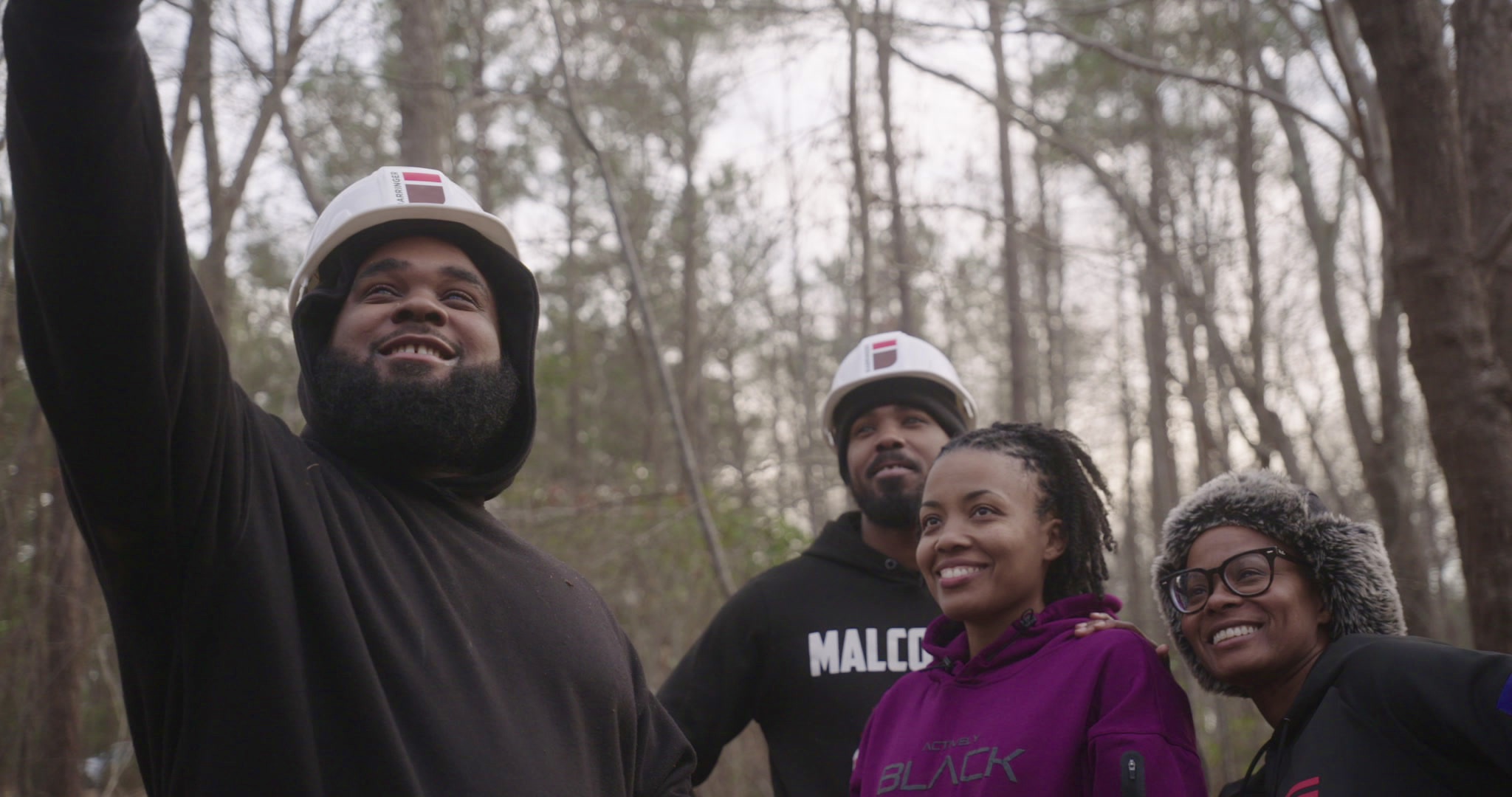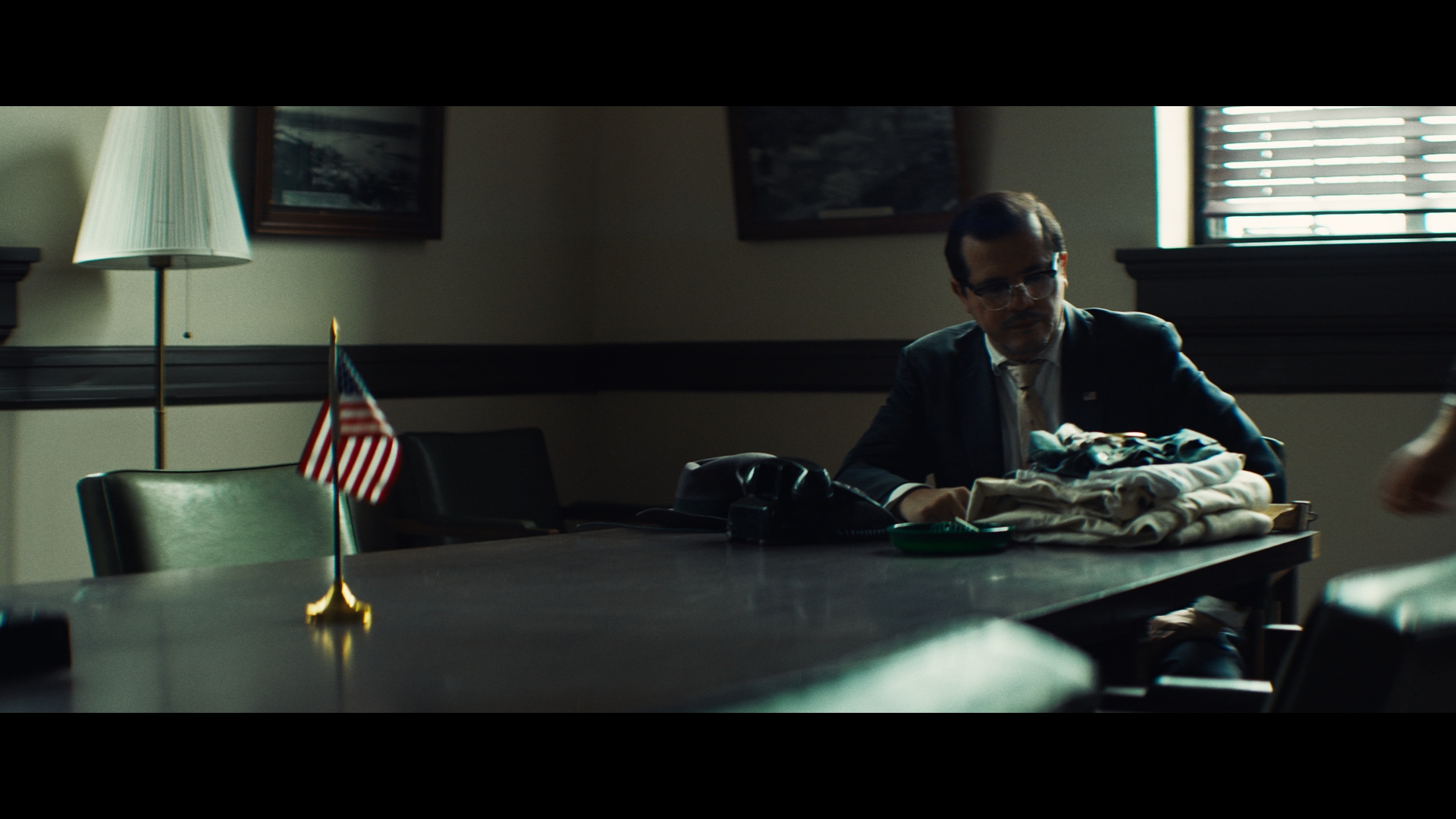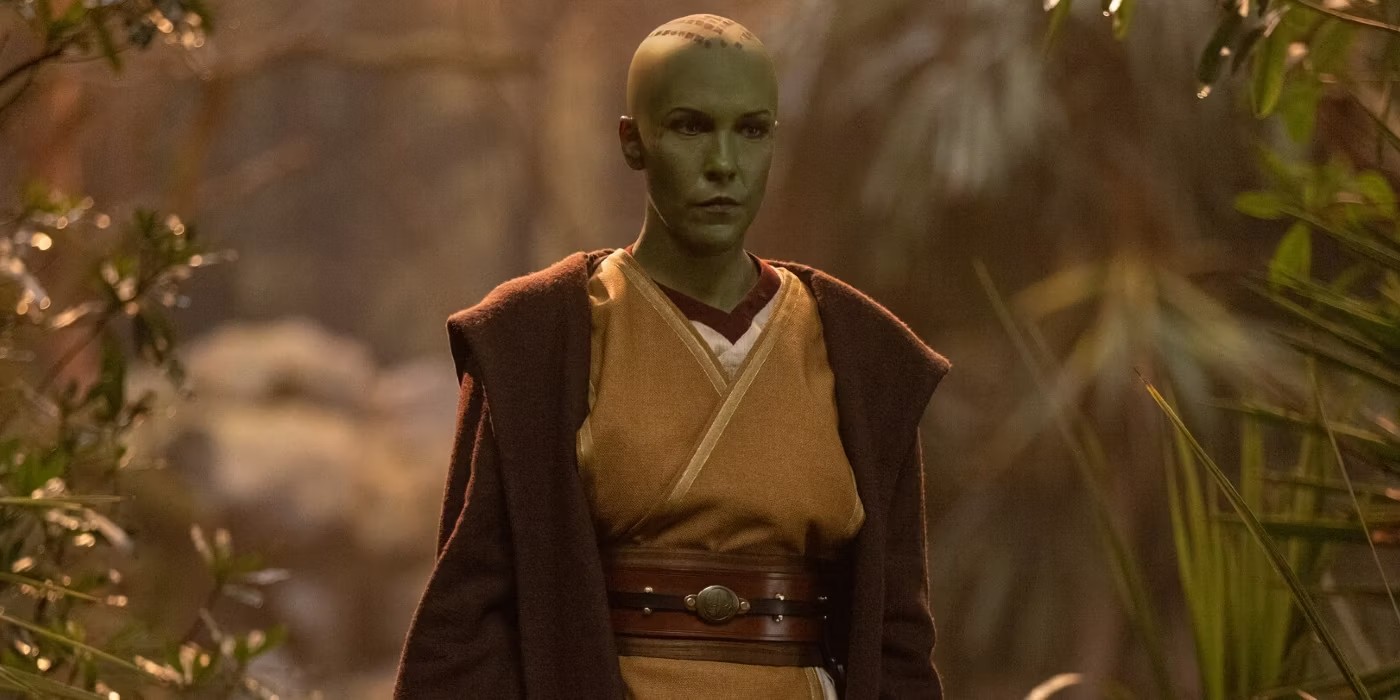For many film fans, it’s easy to think of filmmaking as something with a ridiculous amount of resources an money behind it. Of course, in the world of indie filmmaking, that isn’t always the case, and many artists out there are forced to make do with the resources they have at their disposal. Such is the case with this new film, The Divide, from director Perry King, who is mostly known in Hollywood as a character actor.
With his feature directorial debut, The Divide, he has the honor of showing off his own home as the main setting for a film about four broken people who help raise each other up. The film is made with a lot of love and care, as well as an eye to the past in terms of style. As King says, it’s a film made for people who miss old time movies.
LRM had a chance to sit down with King to discuss the film, and in it, we learn about his home, which served as the set, his love of old films, and need for a tight, specific script, catered for maximum effect.
The Divide hits select theaters this Friday, and check out our full interview below!
LRM: Okay, so let’s start with as a director, why this type of story?
Perry King: We started with the premise that we wanted to do …[Screenwriter Jana F. Brown] and I were working on something, and she was doing an interview with me, is all it was, just over the phone, and for a magazine, for a school I went to. We had so much fun, that we said, “Let’s do something else together.”
She said, “Well, what could be do together? What have you always wanted to do?”
I said, “I’ve always wanted to make my own film.”
She said, “What would it be like, this film?”
I said, “Well, it would be a western, and I’d shoot it on my own property, because I’ve got this ranch. Use it. It would be about fathers and daughters, and it would be about redemption, and it should be some period, any period at all, as long as it isn’t today.”
So, she started working on that idea, and she brought to it, the whole alzheimer’s dementia side of it, because that was in her family, and that brought up a whole lot of stuff.
She said she started with the premise. She was driving one day, and she said, “What if this old man, who is experiencing the beginnings of Alzheimer’s, the one thing he couldn’t forget, and didn’t forget was, some terrible thing that had happened? What if that was the one thing that stayed in his mind? So, she started working with that, and then we just started writing together, but I quickly discovered I couldn’t do that. She could, but I couldn’t.
We were gonna write it scene by scene, and she’d take one, I’d take one. But, it was very evident immediately, that she could do it, and I couldn’t, so I became the guy who would read it, and criticize it. After reading thousands of scripts over the years, I felt I could read, and tell her if something was working, or not.
The main thing I did, I think for her was, just said less, less, less. She’d write a paragraph, and I’d say, “Now, cut it to a sentence.” Or, a sentence, and I’d say, “Cut it to two words.” You know?
Which is one of the things that I feel good about, about the screenplay is, that it’s very tight. The language is very precise.
LRM: It is. You mentioned western. Why western?
King: I just always loved westerns, my whole life. When I was a kid, I’d watch black and white westerns, and when I was a little boy on television, and just fell in love with it.
My dad always said, “Figure out something you’d do for free, because you loved it so much, and then try to make a living at it. Don’t do it the other way, and try to get rich doing something you hate.”
I’d look at black and white westerns, and think, that’s what I want to do, right there.
LRM: Was that the reason for the black and white?
King: Yeah, yeah.
LRM: That was a good touch.
King: I always loved black and white, always. I knew, any movie I did, was gonna be a black and white movie.
LRM: And I have to say, the black and white movies are the best.
King: I think so too.
LRM: Those are the best.
King: I agree.
LRM: Those are the real classics.
King: Maybe that wouldn’t be true if they were all black and white, you know? But they’re not, so it’s so special.
LRM: It makes you think that they’re more like real, original.
King: Yeah. Well see, that was another premise here for us was, we wanted to make an old fashioned movie. We wanted to make an old time movie, for all the people that missed the old time movies.
I do, I don’t like … I hate to say this, because I don’t ever like to be negative, but I don’t like the bulk of what comes out of Hollywood these days. There’s so much about it I don’t like. The stories are not about people. They’re usually stories about guns, or blood splatter, you know?
LRM: There’s a pattern.
King: Or, people flying with capes. I don’t care about some guy who flies with a cape. I can’t do that. What am I gonna learn from that, you know? I want to see real people, the drama of ordinary life, the drama of real people. I want to see people that …
Jana and I talked endlessly about that. I always think the people you pass on the street, that you don’t even look twice at, if you knew their life, from the inside, their life would be filled with drama, because everybody’s is. That’s the stories I want to see, so that’s the story I wanted to make.
LRM: You know what? That’s true. In the film, I noticed as it develops, there’s more story, and more surprises. Like you said right now, if you really look into anyone, there’s drama. It’s like, we all appearance, look like everything is fine and dandy, but yet, we’re all just trying to keep it together.
King: Yeah, yeah.
LRM: Which, I noticed that in the film.
King: Exactly.
LRM: Somehow, everyone was trying to keep it together, but at the end-
King: Yeah. Well, the story that she wrote, and I love the story so much. The story she wrote is about four different people, all of whom need redemption, and that was the theme that we wanted to do, but they all four need redemption, and they all four get it.
Not only Sam gets redemption with Sarah, but Sarah gets redemption with Sam, and Luke gets redemption about his mother, and his father from her, and even Levi Kreis, who plays Tom, the guy with the rifle at the end, even he gets it with Sam. Sam says, “I know you.” And Levi says, “Maybe I should have been more like Carson.” You know? And Sam gets it.
You know, that’s one of the things that I think we portrayed, that I’d like to think we portrayed well is, Alzheimer’s people, I’ve spent a lot of time with people who are suffering from that, and they come in and out. It isn’t like they’re gone all the time. They come in and out of focus.
Sometimes, they’ll … Well, one guy that was one of my best friends when I was a kid, and I knew him as a mature man, a very strong, powerful man, and then I’d visit him in a nursing home, and he had Alzheimer’s, but periodically, suddenly he’d be there, and he’s see you clearly, and he’d know someone.
So, Sam sees Tom, and he says, “Get out of here.” You know? “We’re even.” He says. That’s it, that’s redemption. “We’re even.” Leave, we’re even, but don’t ever come back.
LRM: That’s right.
King: What a cool story to evolve, where four people need it, and get redemption.
LRM: They were fortunate to find each other. If not, if Luke hadn’t come along, then what would have happened?
King: Yeah, yeah.
LRM: One of the things that I noticed in this film people can relate to, that’s it’s a story of coming of age too, because we all have our parents, and maybe something goes wrong, and you disconnect, but I have to say that, I really liked how that developed.
King: With the little boy, you mean?
LRM: Mm-hmm (affirmative)-
King: Yeah, yeah. I do too. We originally were going to have that boy be about eight. And I said, “Even though it stretches the time a little bit, I wanted him to be right on the cusp of becoming a man, but he doesn’t have a man in his life at all.” So, he doesn’t have anybody to measure himself by, and to learn from.
Then, all of a sudden, he’s got two men. He’s got the field hand, Luke, Bryan Kaplan’s character, and his grandfather. That’s what for me, that whole ranch scene with the rustler, with the cows, and shooting the cows, that’s what that’s about is, the little boy watching that, and seeing his grandfather rise to the occasion, you know? Be the man that he wants to be. He learns so much from that.
That’s why, I don’t know if anybody ever gets this, but the hat that the little boy is wearing at the end, when he goes to the funeral, that’s Sam’s hat.
LRM: That was Sam’s, huh?
King: Yeah, yeah.
LRM: I was like, “Wait, that’s kid didn’t really have a hat during the film.”
King: Yeah, he took his grandfather’s hat. He took his grandfather’s identity, his grandfather’s … He learned. It’s just what you said, he’s coming of age, and he takes his grandfather’s identity.
LRM: I like that. One of the lines that I really like was when Luke and Sam were speaking, and he says, that it’s nice how you can have … I don’t remember the words exactly, but about being able to forget some of the things that you want to forget when sitting in the patio.
King: Oh yeah, yeah, on the porch there.
LRM: Yes, on the porch.
King: And what Sam says?
LRM: Mm-hmm (affirmative)-
King: What Sam says is, “The one thing I’d like to forget, is the only thing I seem to remember.” “The one thing I’d like to forget, is the only thing I seem to remember.” It’s a great line, isn’t it?
LRM: It’s a good line.
King: Yeah.
LRM: And then also, it’s covering about how a stranger can be your best confidant.
King: Yeah.
LRM: I was like, “That is so true.”
King: Yeah.
LRM: That is so true.
King: Yeah. Well, I can’t wait to tell Jana that you said those things. Yeah, because I’m gonna see her in just a little bit. She’s flown out from the east coast, to come to the premier, so-
LRM: Oh, that’s awesome.
King: That’s who just landed at the airport. Yeah, I’ll tell her you said that.
LRM: There were some keys that were touching. It’s not like … you don’t need long sentences, or anything.
King: That’s it.
LRM: It’s just the specific words, like-
King: Like in the beginning, Sam says, “You gotta understand why the holes are there in the first place.” About the fence, the whole motif of fixing the fence.
LRM: Oh, that’s right, that’s right.
King: All through the movie, they keep fixing that fence. And finally at the end, the very last shot, the fence is perfect. We were almost gonna put a logo up there, that said, “Some fences are hard to mend.” But we thought that was too on the nose, so just let people see it, if they see it.
LRM: Make them think.
King: Yeah, you know?
LRM: Awesome, yeah.
King: Yeah, because he’s working on that fence. All through the movie, he’s building that fence.
LRM: Well, tell us about the filming part. You mentioned, you said it was filmed in your ranch?
King: Yeah, yeah.
LRM: Okay.
King: I have a cattle ranch, up in Sierra, Nevada.
LRM: Oh, nice.
King: And I love that place. I always thought, it I make a western, I’ll make it on my own land, because then I won’t fight with the landowner about anything. He’ll be on my side.
LRM: So, that was your cattle?
King: Yeah, those are my cattle.
LRM: Really?
King: Yeah, those are my horses. All the stuff is there. We wrote the screenplay for what we had. It’s backwards. In the very beginning, I sent Jana pictures of the homestead, the little house, and the-
LRM: The barn?
King: Yeah, the barn, but the barnyard.
LRM: The barnyard.
King: And I sent her pictures of … for example, there’s two barns on the property actually. There’s the barn that we used through the whole thing, the imposing structure, that old wood structure, but then, a little ways down the entry road, and you never see it, until the very end, is a similar barn that collapsed. So, when the barn collapses, we just went over to the collapsed barn, and shot there. We didn’t have to dress it, or create it.
LRM: Okay, I see, so that is convenient. How long did it take to film the-
King: Yeah, well I thought it was a brilliant use on her part. She wrote the barn collapsing, because she knew we had a collapsed barn, as well as a standing barn. So, she used the location I thought, exceptionally well.
LRM: Yeah, that was very well. So, how long did the filming take?
King: About five, six-day weeks, 30 days.
LRM: How did you do the scenes with the rain?
King: Well, we built a rain machine. You can’t ever … It’s funny, everything is so serendipitous with this movie. A year before we started shooting, we booked the day, we wrote the schedule up, and we had a schedule that we’re shooting the rain scenes on a particular day.
Now, it never rains up there. It stops raining around late April, early May, and then it won’t rain again, until Halloween, until right around now, right? But, we wrote that, and I think … Let me think … August, September, I think it was late September, and we wrote the rain scenes. I thought, maybe it’ll rain that day, you know? Not that you can shoot it, because for rain to show up on film, you gotta have really heavy rain. You can never shoot rain. You always have to make your own, but son of a gun, it rained that day. It actually rained for the first time in six months, on the day we shot the rain scenes.
LRM: Sounds like a sign.
King: It’s like a sign from Heaven, saying, “This is good.”
LRM: That was a good sign.
King: But, we still had to use our rain machine, which we just created. We just hooked up some PVC, drilled holes … You know, it’s not that hard to make a rain machine.
Don’t forget to share this post on your Facebook wall and with your Twitter followers! Just hit the buttons on the top of this page.
SOURCE: LRM Online

 FOR FANBOYS, BY FANBOYS
Have you checked out LRM Online’s official podcasts and videos on The Genreverse Podcast Network? Available on YouTube and all your favorite podcast apps, This multimedia empire includes The Daily CoG, Breaking Geek Radio: The Podcast, GeekScholars Movie News, Anime-Versal Review Podcast, and our Star Wars dedicated podcast The Cantina. Check it out by listening on all your favorite podcast apps, or watching on YouTube!
Subscribe on: Apple Podcasts | Spotify | SoundCloud | Stitcher | Google Play
FOR FANBOYS, BY FANBOYS
Have you checked out LRM Online’s official podcasts and videos on The Genreverse Podcast Network? Available on YouTube and all your favorite podcast apps, This multimedia empire includes The Daily CoG, Breaking Geek Radio: The Podcast, GeekScholars Movie News, Anime-Versal Review Podcast, and our Star Wars dedicated podcast The Cantina. Check it out by listening on all your favorite podcast apps, or watching on YouTube!
Subscribe on: Apple Podcasts | Spotify | SoundCloud | Stitcher | Google Play





